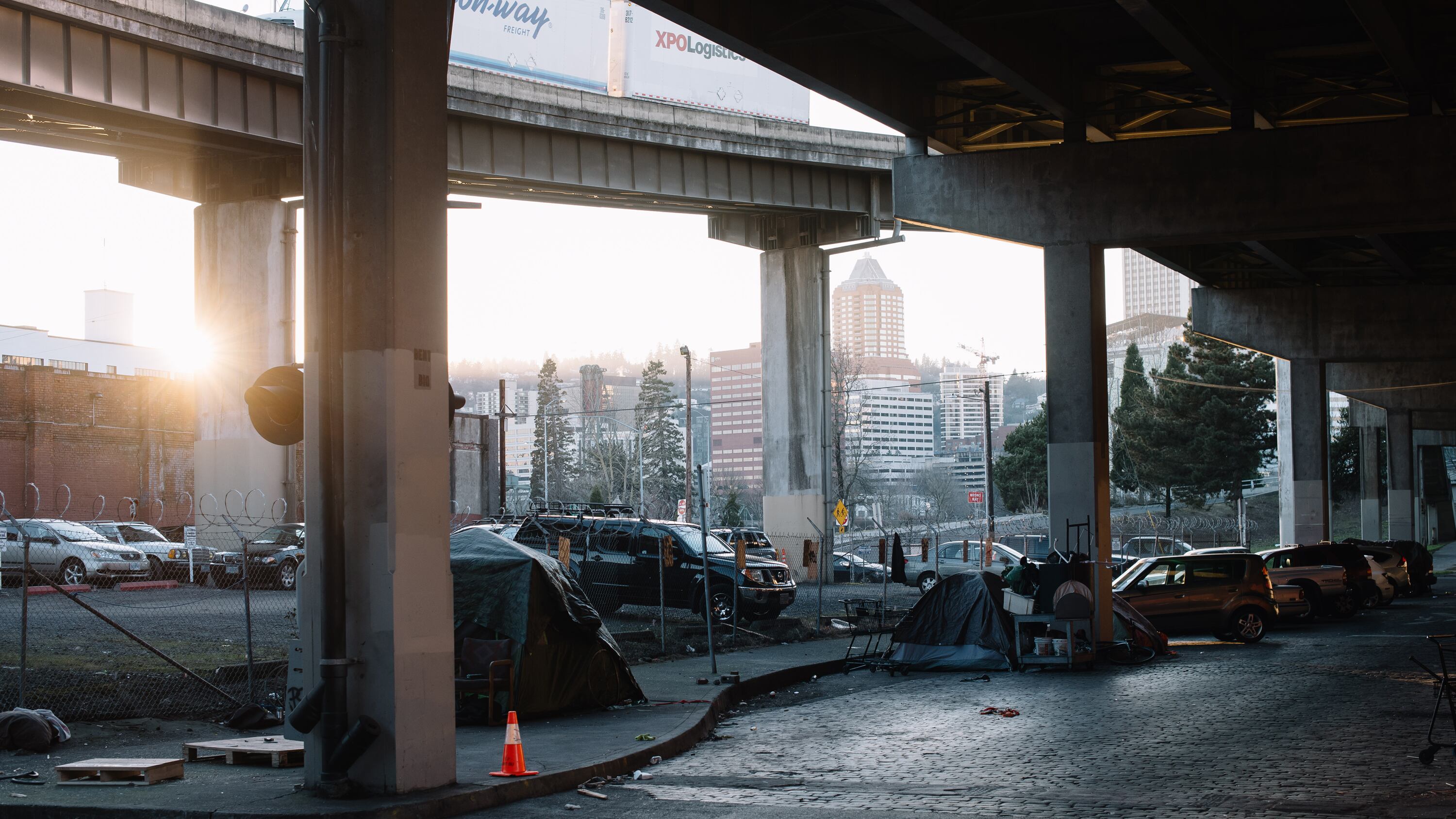Developer Homer Williams last week announced plans to open a shelter in the Pearl District with $1.5 million in backing from Columbia Sportswear CEO Tim Boyle.
Williams has announced plans for shelters before. But not with anywhere near this kind of backing.
The donation, first reported by The Oregonian, marks a new level of engagement on homelessness from the private sector.
It represents an about-face for Williams, who had fought to keep Right 2 Dream Too, the homeless rest area, from locating near the very hotel where he held the press conference last Tuesday.
The new shelter is to be a "membrane" structure that can be built within two months, with aluminum supports and outer shell. The location will be public property owned currently by Prosper Portland.
A few things that were notable from the announcement.
- Williams called the shelter a “navigation center“—which helps differentiate it from mass shelters he’s pushed at other times. (This shelter will serve 100 to 120 people.) “Navigation center” was the term Mayor Charlie Hales used for a shelter he wanted to open not far from Revolution Hall on Portland Public Schools property—a plan he ultimately abandoned. The concept is drawn from San Francisco, where the idea is to make shelters more inviting by allowing people to bring their partners, pets and belongings to a central location where there’s ready access to services. In the intervening two years since Hales first floated the idea, Multnomah County has also moved in the direction of creating lower-barrier shelters.
2. In the most authoritative and strongest terms yet, Portland's housing market was identified as a public health crisis: "The lack of affordable housing is the most important public health problem in our community," said Oregon David Bangsberg, dean of the OHSU-PSU School of Public Health. (Bangsburg was the subject of a profile in the Oregonian this weekend, which is worth reading, and not just for the analogies he uses to compare his work on housing to research on HIV and AIDS.)
"This is first and foremost an economic challenge," Bangsberg went on. "Since 2015, the median rental price has risen 20 times more than the median wage. While mental illness and substance use complicate homelessness, homelessness is more often the cause of de-compensated mental illness and substance use than the effect."
3. It comes at a time when the city-county Joint Office of Homeless Services has abandoned plans for a proposed shelter in Old Town. The joint office determined it would cost too much—roughly $8 million—to open that location. That means that the private sector in this case may be providing a location in an area of the city the joint office had identified as ideal for a new shelter.
4. One question hanging over the proceedings is how much the public sector will need to pitch in. At the press conference, Mayor Ted Wheeler answered it like this: "I'm going to do nothing here today to take anybody's foot off the accelerator of the private sector stepping up," Wheeler said. "I think that's a good idea." With that, Wheeler patted Williams on the back. Williams responded "Uh-oh," but smiled as he did. Williams' group, Oregon Harbor for Hope, committed in a press release to at least raising another $1.5 to $2 million from private sources to open the shelter.
5. Williams failed to get a shot at opening another shelter this week. The county voted to sell Wapato Jail to another developer despite a much-reduced offer.
